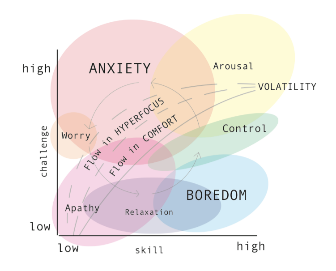The stress response , also known as the “fight or flight” response , is the bodies emergency reaction system. It’s purpose is to keep you safe in emergencies. The stress response includes physical and mental responses to your perception of threats in various situations.
When you sense danger, whether real or imagined, the body’s defense system kicks into high gear in this rapid, automatic response of “fight-or-flight” or the “stress response.”
The stress response is the body’s way of protecting you. When working properly, it helps you stay focused, energetic, and alert. In emergency situations this rapid response can save your life, giving you the extra strength you might need to defend yourself, for example, triggering your reaction to slam on the brakes to avoid a car accident.
Stress can also help you rise to meet challenges. It is what keeps you on your toes during a presentation at work, sharpens your concentration when you’re attempting the game-winning free throw, or drives you to study for an exam when there are other things you might prefer to be doing. Beyond a certain point though, this stress response stops being helpful and starts causing major damage to your health, mood, productivity, relationships, and your quality of life.
If you frequently find yourself feeling frazzled and overwhelmed, it is an indication that it is time to take action to bring your nervous system back into balance.
Fight-or-flight response: what happens in the body
Your nervous system responds by releasing a flood of stress hormones, including adrenaline and cortisol, which rouse the body for emergency action. Your heart pounds faster, muscles tighten, blood pressure rises, breath quickens, and your senses become sharper. These physical changes increase your strength and stamina, speed up your reaction time, and enhance your focus, preparing you to either fight or flee from the danger at hand.

The effects of chronic stress
Your nervous system isn’t very good at distinguishing between emotional and physical threats. If you’re super stressed over an argument with a friend, a work deadline, or financial issues, your body can react just as strongly as if you’re facing a true life or death situation. The more your emergency stress system is activated, the easier it becomes to trigger, eventually making it harder to shut off.
If you tend to feel stressed frequently, as many of us do dealing wtith the demands associated with our current lifestyle and circumstances, your body may be in a constant heightened state of stress, which can lead to serious health issues. Chronic stress disrupts nearly every system in your body: it can suppress your immune, digestive and reproductive systems, increase the risk of heart attack and stroke, and speed up the aging process. It can even rewire the brain, leaving you more vulnerable to anxiety, depression, and other mental health problems.
Health problems triggered by elevated stress include:
- Depression and anxiety
- Pain of any kind
- Sleep problems
- Autoimmune diseases
- Digestive problems
- Skin conditions, such as eczema
- Heart disease
- Weight problems
- Reproductive issues
- Thinking and memory problems
Signs of stress overload
The most dangerous thing about stress is how easily it can creep up on you. It can begin to feel familiar or ‘normal’ so you may not notice how much it is affecting you. warning signs and symptoms of stress overload.
Behavioral symptoms:
- Eating more or less
- Sleeping too much or too little
- Withdrawing from others
- Procrastinating or neglecting responsibilities
- Using alcohol, cigarettes, or drugs to relax
- Nervous habits (e.g. nail biting)
Common internal causes of stress include:
- Pessimism
- Inability to accept uncertainty
- Rigid thinking, lack of flexibility
- Negative self-talk
- Unrealistic expectations / perfectionism
- All-or-nothing attitude
How can I address my stress levels?
Phyisical activity: Creating a regular exercise habit is one approach to help you to start to feel better. Regular exercise has been proven to help improve your sense of well being, serving as a distraction from your worries and allowing you to break out of the cycle of negative thoughts that feed stress. Exercise and other physical activity produce endorphins, chemicals in the brain that act as natural painkillers. They can also help you sleep if this has become an issue, which in turn reduces stress. Rhythmic exercise such as walking, running and swimming are recommended as they encourage you to shift your focus in order to create a momentum. Yoga , meditation, massage therapy and even deep breathing can also stimulate the production of endorphins.
Connect to others: The simple act of talking face to face with another human can trigger hormones that relieve stress when you’re feeling agitated or insecure. Even just a brief exchange of kind words or a friendly look from another human being can help calm and soothe your nervous system. Spend time with people who support you and appreciate you for who you are and what you are experiencing at the moment, rather than people you feel are judging you or draining your energy with their issues. If you don’t have many close relationships, or your relationships are the source of your stress, make it a priority to seek out interests or activities that will allow you to connect with like minded people.
Eat a healthy diet: The substances you choose to ingest can impact your mood enormously, affecting your ability to cope with life’s stressors. Eating a diet full of processed convenience food , sugary treats and other stimulants such as caffeine and alcohol, can worsen symptoms of stress by placing more of a load on the nervous system. Reducing caffeine and alcohol and increasing your intake of fresh fruit and vegetables, high-quality proteins, and omega-3 fatty acids, can help you better cope with life’s ups and downs.
Get your rest: Feeling tired can increase stress levels by compromising your ability to think clearly and rationally. At the same time, chronic stress can disrupt your sleep. Whether you’re having trouble falling asleep, or staying asleep, there are several things you can do to ease your stress levels, allowing you to be more productive and restore emotional balance.
How do our retreats address stress?
Bushwalks: Walking in nature is so powerful for our health and well-being that some doctors have begun prescribing it as an adjunct to other treatments for disease. As one group of researchers puts it, “the synergistic effect of physical activity and time spent in nature make bushwalking an ideal activity to increase overall health and wellness.”
Yoga: Breath Control – Pranayama, or breath work, is an important part of any yoga practice. At the very least, yoga increases your awareness of the breath as a tool for relaxing the body. Although breathing is an involuntary act (you have to keep doing it to stay alive), you can choose to regulate the breath. Just learning to breath deeply will help you realise how easily this can become a quick way to combat stressful situations.
Clearing the Mind – o ur minds are constantly active, racing from one thought to another, spinning possible scenarios for the future, dwelling on incidents from the past. All this mind work is tiring and stressful. Yoga offers several techniques for taming the mind. One is breath work, as outlined above. Each breath is tied inextricably to the present moment; you are not breathing in the past or the future, but only right now. Focusing on each inhale and exhale to the exclusion of other thoughts is one way to clear the mind,
Breathwork is also a basic meditation technique. In addition, the performance of yoga poses, or asanas, also acts as a form of meditation. The poses are quite physical and have to be done with such concentration, that all other thoughts and worries are put to the side, giving your brain a much-needed break.
Relaxation – Each yoga session ends with five to ten minutes spent relaxing. While this enforced relaxation can be difficult at first, eventually it serves the purpose of a total release for both body and mind.
We also practice Yoga Nidra at our retreats, which is a practice that offers an opportunity for a longer, deeper period of relaxation and an introduction to meditation, which can also be a great stress reducer.
Detox programs: Our nutrient rich juicing program floods your body with essential vitamins and minerals to allow your body to recuperate and repair itself while you are abstaining from your usual dietary intake. When your body does not have to deal with the stresses associated with the digestiive process, the adrenal system is also able to rest and restore. Adrenal fatigue occurs as a result of chronic stress. Your adrenal glands are responsible for producing cortisol which is a hormone that helps regulate your blood pressure.
When you are experiencing stress, your adrenal glands release cortisol. When you experience chronic stress or anxiety, your adrenal glands may not produce enough cortisol, this is called adrenal insufficiency. Allowing your whole system to rest and restore at one of our retreats is the most effiecient way to replenish the adrenal system.
Sauna’s: We are fortunate enough to have a sauna at our Yarra Valley location and it is an integral part of our program. Saunas can ahelp to reduce your levels of stress and anxiety. According to the book “Sauna Therapy for Detoxification and Healing,” written by Dr. Lawrence Wilson, several studies have shown that regular sauna use lowers levels of cortisol, which is the body’s main stress hormone. Dr. Wilson writes that research has shown that sweating increases relaxation, which reduces anxiety and the feeling of frustration.
For more information on how our programs can help you to re-establish an equilibrium and discover alternatives to the debilitating effects of the stress response, please forward your details and we can provide you with a schedule of our programs.






